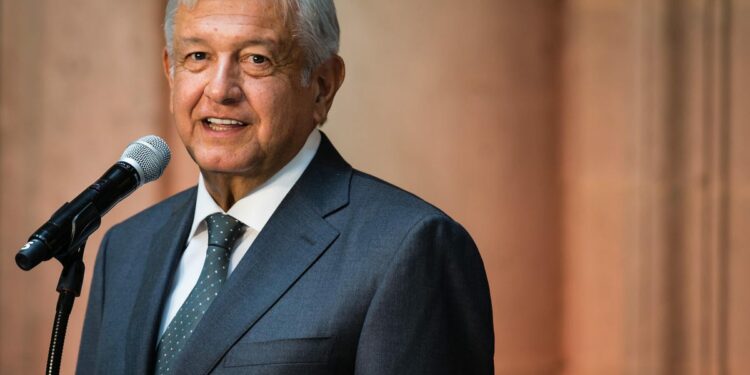Recent moves by Mexico’s government targeting the country’s energy industry have led to increasing concerns that President Andrés Manuel López Obrador (AMLO) intends to ultimately re-nationalize the nation’s entire energy sector. This happened once before in 1938 and has never served Mexico’s national interest well, a reality that ultimately led to reforms to allow international energy investment enacted during the Enrique Peña Nieto presidency in 2014.
AMLO has never made any secret of his leftist leanings. His anti-business ideology has characterized his policy positions throughout his career in Mexican politics. That reality led many to speculate during the 2018 election campaign that, if elected, he would likely move to re-nationalize his country’s energy sector, reversing the Peña Nieto reforms.
Those energy reforms were historic and badly needed, after decades of decline and mismanagement at PEMEX, Mexico’s state-run oil company. The reforms ushered in billions of dollars of new investment from global leaders in energy, creating new jobs, new oil and gas discoveries, new energy transportation infrastructure and electric generation assets to the benefit of the local economy and Mexican consumers.
Despite some of his more extreme rhetoric during the 2018 campaign, AMLO assumed a moderate posture towards the energy industry and its many international investors early in his presidency, possibly influenced by then-U.S. President Donald Trump. But in 2021, with the advent of a U.S. administration overtly hostile to the U.S. domestic industry, AMLO has begun taking measures to centralize government control over energy, most recently with the proposal of a series of constitutional measures that would reassert state control of the electricity market.
If enacted, these new reforms will reverse previous national commitments to an independently regulated, market-based system that encouraged investment and the benefits Mexico can achieve through them. They will banish private investment in electricity, reserve future control of lithium extraction to the state, and even eliminate two key energy regulatory bodies – the National Hydrocarbons Commission (CNH) and the Energy Regulatory Commission (CRE) – consolidating their functions under the Energy Ministry and the State-owned power company Comisión Federal de Electricidad (CFE), while giving much more leeway to PEMEX.
These efforts to centralize authority and prop up PEMEX and other parts of Mexico’s energy apparatus have recently featured the use of authoritarian tactics. In September, Mexican National Guard troops sealed the gates at a major fuel terminal operated by Monterra Energy, a company owned by the U.S. investment firm KKR. The Wall Street Journal reported that the terminal is part of about half a billion dollars in investments in Mexican diesel and gasoline storage facilities and that other major companies, like Sempra and Bulkmatic, are facing similar aggressive regulatory actions. All of these international companies compete with Pemex infrastructure in some way.
Needless to say, turning up with the Army is not a way to encourage you neighbors to invest, nor does it seem to comport with critical trade agreements such as the USMCA treaty.
But that’s just the tip of the iceberg. The López Obrador government has taken other heavy-handed actions, including:
- Suspending the permits of several U.S.-owned fuel storage terminals used by private operators of fuel stations across the country.
- Authorizing the social and environmental agency ASEA to deploy the national guard to conduct joint ‘inspections’ of fuel-related sites with the CRE. Those inspections produced 23 full temporary closures and 17 partial temporary closures of sites over alleged violations of environmental impact rules.
- Using Mexico’s tax authority to change Mexico’s General Rules for External Trade in June and September 2021. The changes first banned private companies from obtaining or renewing three-year permits that are required for fuel terminals to serve as points of entry and exit for hydrocarbons, and then backtracked but tied them to other permits from various agencies, including the Energy Ministry and the Navy. The tax authorities also suspended 82 companies in July from trading fuels over alleged fiscal violations.
- By Presidential decree, Mexico’s customs operations were placed under military control in July, a move that was taken with no prior consultation or public debate.
Notably, AMLO’s moves will likely chill, if not freeze, domestic and international investment in the country’s young wind and solar industries, placing Mexico on a footing contrary to the prevailing energy transition narrative just as the UN prepares to convene its COP26 climate summit in Glasgow, Scotland on Halloween. Obviously, his interest in protecting the ability of state-owned PEMEX to supply fuel oil to CFE- run power plants outweighs his concerns about complying with goals set under international climate agreements like the Paris Accords.
For the Mexican people, AMLO’s steady reassertion of state control of the nation’s energy sector provides yet another sad lesson in the perils for private companies making major investments in the country and will predictably lead to higher energy costs for Mexicans and across several North American value chains. It is a lesson that will make any efforts by future presidents to attract new international investment into the country all the more difficult to achieve.











